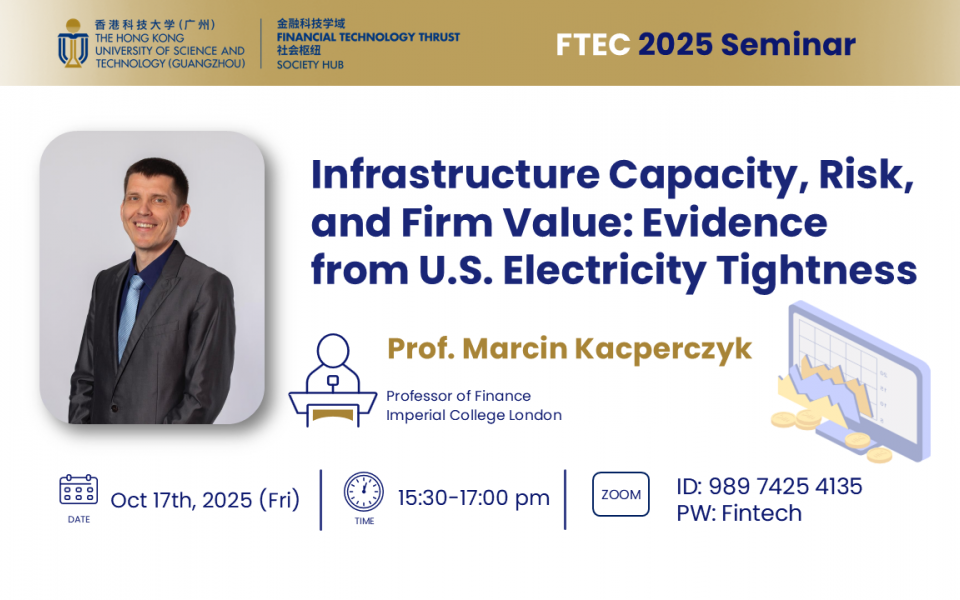FINTECH THRUST SEMINAR | Infrastructure Capacity, Risk, and Firm Value: Evidence from U.S. Electricity Tightness
Supporting the below United Nations Sustainable Development Goals:支持以下聯合國可持續發展目標:支持以下联合国可持续发展目标:
Infrastructure Capacity, Risk, and Firm Value: Evidence from U.S. Electricity Tightness
Abstract:
Real-time bottlenecks in non-storable infrastructure-most visibly electricity-can throttle modern production, yet standard models treat capacity as unlimited. We embed proportional rationing of grid supply into multi-sector economy, showing that unexpected scarcity cuts output, employment, and consumption, while the prospect of future capacity expansions mitigates those losses. To test the model's predictions, we measure U.S. public firms' exposure to realized electric capacity constraints and future expected capacity tightness. We confirm the model's predictions using panel regressions with fixed effects and establish causality by exploiting two quasi-natural experiments: the 2021 Texas blackout (a 34 GW supply shock) and subsequent state reforms that raised future expected capacity. Difference-in-differences estimates indicate a drop in short-term profitability and firm value in affected firms. Higher future anticipated capacity leads to higher longer-term employment, capital, and firm value. Investors demand higher expected returns for firms with greater exposure to electric capacity constraints, confirming that infrastructure tightness, either due to excess demand or limited supply, is a priced, macro-critical risk.
Marcin Kacperczyk is a Professor of Finance at Imperial College London with research interests in the areas of climate finance, financial intermediation, financial stability, and information economics. He is a Research Associate at the Center for Economic Policy Research, research fellow at ECGI, and the managing editor of the Review of Finance. Marcin’s work has been published in leading academic journals and widely covered by media, such as CNN, CNBC, Bloomberg, WSJ, FT, NYT, Business Week, U.S. News, and Washington Post. He is a past holder of the European Research Council research grant and former President of the European Finance Association.
